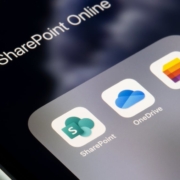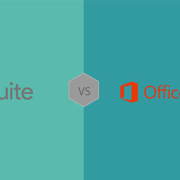Making the Best Choices for Your Business Email
Running a business is a 365 day a year job. While you focus on running your business, let Framework Communications focus on keeping you up-to-date on the latest developments in information technology. In the 4th quarter of 2015, Microsoft launched Exchange Server 2016 and implemented updates to its Office 365 service and software suite. While both feature improved security, there are several key differences, which is crucial to understand when making the best choices for your business email as to which route is best for you.
Office 365 is Microsoft’s cloud based subscription service and therefore there is no purchase requirement of any additional hardware. The low monthly subscription structure makes it a cost effective option for many small to mid-sized businesses in industries who need to comply with all current privacy and regulatory guidelines. Many business owners do not realize that free e-mail services, such as Gmail, Yahoo, and AOL are not compliant with certain security and privacy regulations such as HIPAA, PCI, and SOX. This is especially important to consider when selecting a vendor to help you with this transition. Framework Communications as an IT Managed Service Provider has integrated these regulatory compliance considerations, such as HIPAA and PCI, into its client service delivery processes. If you have followed our blogs in the past few months we have highlighted the almost immeasurable costs to any business that is trying to deal with compliance issues retroactively.
In addition to meeting confidentiality requirements, the email service in Office 365 has an added feature called “Clutter.” Clutter utilizes smart technology to learn patterns in users email. If it sees that emails from a specific sender are consistently never opened or immediately deleted it will send those messages to the Clutter folder, instead of, the inbox.
Whereas Office 365 is the cloud version, Exchange Server 2016 is Microsoft’s most up to date and secure email software for on-premise options. Some business owners prefer to keep their email server on their own premises rather than Office 365 due to a higher level of internal control. Depending on your particular business’ needs, it can offer higher performance than Microsoft’s cloud based service. There are some cases where an on premises server is the best, such as businesses that require large capacity file shares (50GB in size or more) or operations that would be bandwidth-prohibitive in a cloud scenario. Offices that have less infrastructure access to the internet would be wise to take this into account during their decision making process.
Exchange 2016 on premise version offers all of the same security features as Office 365 and is fully compliant with all privacy guidelines. However, it does not have the Clutter feature that Office 365 users are able to utilize. If you are currently using a now unsupported, or soon to be unsupported version of Exchange, it is past time to upgrade; preparing to move to Exchange 2016 is a must. Any business currently running a version of Exchange Server earlier than 2010 will need to perform an additional step as they upgrade. Files must be moved to Exchange Server 2010 as an interim step as newer versions cannot co-exist with any framework developed prior to 2010. It is important to remember that Microsoft will be terminating all support of any version of Exchange prior to 2010 on April 11, 2017. If your internal IT department has their hands full managing your day to day operations or if you do not have an internal IT department, or worse yet your current Ad Hoc Network Tech/Current Managed Service provider is not preparing you for this transition, Framework Communications can help you ensure a smooth transition as you migrate to the Exchange 2016 environment.
From the initial investment, to ensuring the reliability of your physical servers, to planning for Disaster Recovery, there are a number of pros and cons to be weighed during this decision making process. For many businesses the risk of keeping additional equipment on their premise is too great and migration to the Cloud is the best option. But how do you know which option is the right choice for your business? Framework Communications can help you navigate the confusing world of information technology. You focus on what you do best and let Framework Communications handle the IT. Contact us today.








